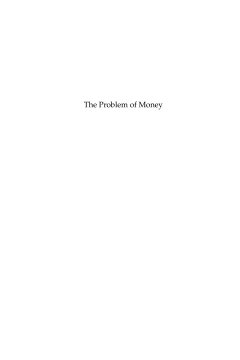
Additional Information
Book Details
Abstract
Based on long-term medical anthropological research in northern Ghana, the author analyses issues of health and healing, of gender, and of the control and use of money in a changing rural African setting. He describes the culture of medical pluralism, so typical for neo-colonial states, and people’s choices of “traditional” (local) medicine (plants and sacrifices), Islamic medicine (charms and various written solutions) and ”modern” therapy (biomedicine, in particular western pharmaceuticals). He concludes that the rural-urban divide is a fiction, that demarcations between these areas are frequently blurred, linked by a postcolonial, capitalist discourse of local markets, regional economies and national structures, which frequently emerge in local African settings but often originate in global and multinational markets.
“The beauty of this book lies in the rich anthropological data gathered and the deep analytical insight that the author brings to bear on the data…The reader is well-informed through the use of local concepts and idioms...In all, the book should serve as a springboard for further studies into the commoditisation of health in traditional societies in Africa. It also offers a wide range of topics for further study and theoretical approaches to interrogate field studies.” · Anthropos
"All in all, this book provides the reader with a fascinating insight into the intermingling of medicines, morality, gender, and inter-generational relationships in a society that is changing rapidly - in spite of the opposition by some of its most powerful members." · African Affairs
“[The author] is very good at conveying the practical realities that face Dagomba women trying to care for their families, and the differing expectations, priorities and options as Dagomba men see them…[He] gives an admirably insightful and sympathetic picture of these relationships, their common sense, their conflicts and hopes.” · Gilbert Lewis, Cambridge University
Bernhard Bierlich is a social and medical anthropologist. He is a member of the Danish Galathea 3 research expedition to inter alia West Africa and the West Indies. He is also affiliated with the Department of History at the University of Copenhagen and a Research Associate of the Wilberforce Institute for the study of Slavery and Emancipation, University of Hull.
Table of Contents
| Section Title | Page | Action | Price |
|---|---|---|---|
| The Problem of Money | i | ||
| CONTENTS | vii | ||
| FOREWORD | xi | ||
| PREFACE | xiii | ||
| Chapter 1. ‘NEW’ AND ENDURING SOCIAL AND ECONOMIC FORMATIONS | 1 | ||
| Chapter 2. POWERS OF THE PERSON | 23 | ||
| Chapter 3. BASIC CONCEPTS OF HEALTH AND ILLNESS | 39 | ||
| Chapter 4. MEDICINES, MODERNITY AND COMMODITIZATION | 55 | ||
| Chapter 5. THE HERBALIST, MEDICAL PLURALISM AND THE CULTURAL PATTERNING OF ILLNESS | 79 | ||
| Chapter 6. HEALTH, WEALTH AND MAGIC | 111 | ||
| Chapter 7. A WOMAN’S LOT: THE PRACTICAL REALITIES OF CARE | 129 | ||
| Chapter 8. THE PROBLEM OF MONEY: MONEY AND MEDICINE | 153 | ||
| CONCLUSION | 181 | ||
| APPENDIX | 187 | ||
| REFERENCES | 195 | ||
| GLOSSARY | 213 | ||
| INDEX | 221 |
